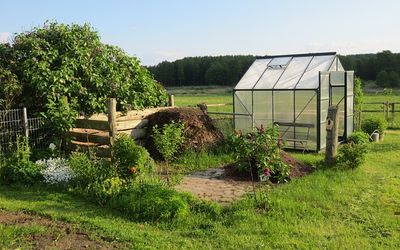How to Start a Garden From Scratch
Get expert tips on starting a garden from scratch, soil management, water solutions, harvesting, and more. Enjoy a healthy and fun hobby for the whole family.
Starting a Garden
Starting a garden from scratch can seem like a daunting task, but with a little planning and preparation, it can be a rewarding and fun hobby for the whole family.
To get started, you'll need to consider a few things. Firstly, you'll need to choose a location for your garden. This can be a small plot in your backyard, a patio or balcony, or even just a windowsill. The most important thing is to choose a spot that gets plenty of sunlight, as most plants need at least six hours of sunlight per day to grow.
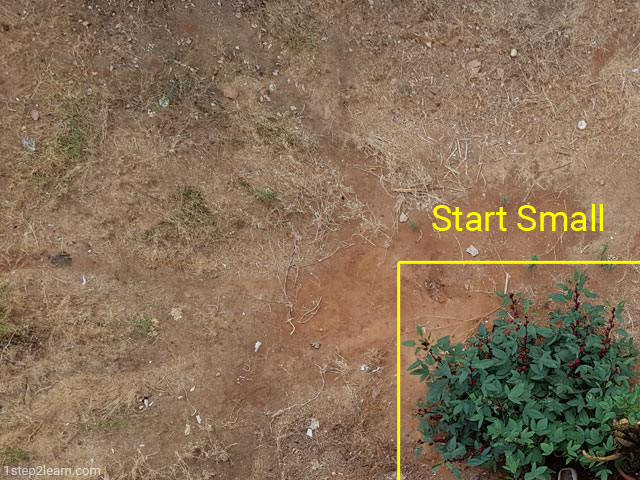
Once you've chosen your location, you'll need to prepare the soil. This means removing any weeds, rocks, or debris. You can also add compost or other organic matter to the soil to help improve its structure and fertility.
Next, it's time to choose what you want to plant. Consider what kind of plants will thrive in your area, and also think about what you and your family like to eat. Vegetables like tomatoes, peppers, and lettuce are a great place to start, as are herbs like basil, rosemary, and thyme. You can also consider adding some flowers to your garden for added color and beauty.
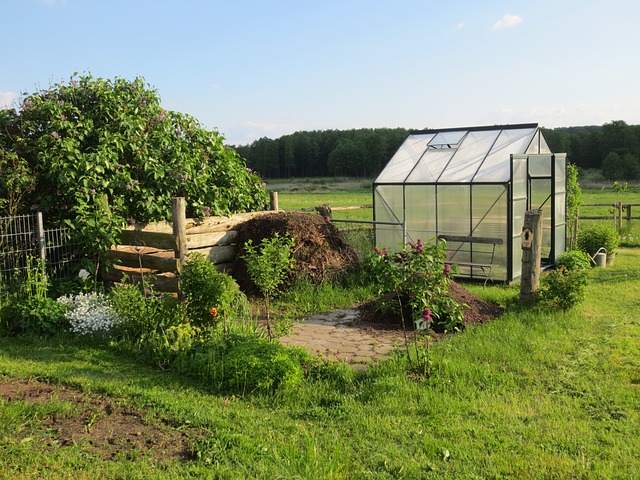
Once you've chosen your plants, it's time to plant them. Make sure to follow the instructions on the plant labels, and be sure to give each plant enough space to grow. It's also important to water your plants regularly, especially during dry spells.
As your plants grow, you'll need to care for them by removing any dead or yellow leaves, and also by making sure they are getting enough water and nutrients. You can also add mulch to the soil to help retain moisture and suppress weeds.
Discovering the Many Benefits of Gardening
Gardening is a wonderful hobby that can bring many benefits to your life. Not only is it a great way to spend time outside and get some exercise, but it also provides you with a number of health and financial benefits.
One of the most obvious benefits of gardening is that it provides you with clean air. Plants naturally filter the air around them, removing pollutants and providing you with a fresher, healthier environment. This is especially important in urban areas, where the air can be full of smog and other pollutants.
Another great benefit of gardening is that it can help you to eat better and save money. When you grow your own fruits and vegetables, you know exactly what has gone into them, and you can be sure that they are fresh and free of harmful chemicals. This not only helps to keep you healthy, but it can also save you money on groceries.
"The glory of gardening: hands in the dirt, head in the sun, heart with nature. To nurture a garden is to feed not just the body, but the soul." ― Luther Burbank
Gardening is also a great activity for the whole family. Whether you have young children who love to play in the dirt, or older children who want to learn about growing their own food, gardening is an activity that everyone can enjoy. Plus, spending time together in the garden can help to strengthen family bonds and create memories that will last a lifetime.
Finally, gardening can be a great way to reduce stress. Working in the soil, planting seeds, and watching your plants grow can all be very calming and therapeutic. Plus, being in nature and surrounded by greenery has been shown to lower stress levels and improve overall well-being.
The Importance of Water in Gardening
Water is a vital component of any successful garden. Without it, plants simply cannot survive. While plants can manage on their own to a certain extent, they still need a consistent supply of water to grow and produce healthy crops.
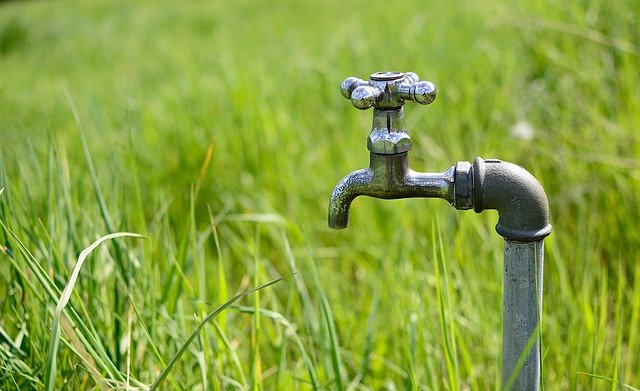
That's where an automatic irrigation system comes in. An automatic irrigation system ensures that your plants receive the right amount of water at the right time, without you having to worry about it. This not only saves you time and effort, but it also helps to ensure that your plants receive the optimal amount of water for healthy growth.
An automatic irrigation system can also help to conserve water, as it is designed to deliver the right amount of water to your plants and no more. This not only helps to reduce your water bill, but it also helps to conserve one of our most precious resources.
Innovative Water Solutions for Your Garden
In addition to an automatic irrigation system, there are many other innovative water solutions that you can use in your garden to conserve and reuse water. These solutions can help you to save money on your water bill, while also reducing your environmental impact.
One simple solution is to wash your fruits and vegetables under a bucket and then use the water to water your plants. This not only helps to conserve water, but it also provides your plants with the essential nutrients that are left in the water from the produce.
Another option for those who have access to groundwater is to dig a small well. This can provide you with a consistent source of water that you can use to water your plants. You can also construct terraces in your garden to help retain water and reduce runoff.
If you have an air conditioner, you can also use the water drain pipe to water your plants. This not only helps to conserve water, but it also provides your plants with the cool, clean water that they need to thrive.
Finally, you can consider installing a rainwater harvesting system. This system collects and stores rainwater, which you can then use to water your plants. Not only is this a great way to conserve water, but it also helps to ensure that your plants receive the cleanest and freshest water possible.
The Importance of Soil in Gardening
Soil is the foundation of any successful garden. It is the tool that you use to grow your plants, and a healthy soil can make all the difference in the growth and productivity of your garden.
Creating healthy soil is not complicated. In fact, the key to creating healthy soil is to let nature work its magic. You can do this by promoting diversity in your garden, adding food scraps and compost, having animals, and minimizing soil disturbance through no-till gardening practices.
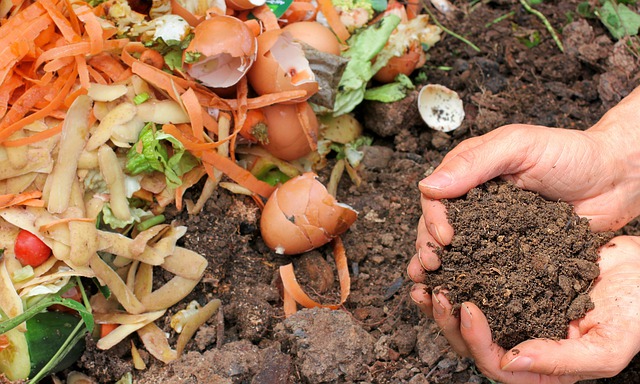
One way to promote soil health is to have a diverse range of plants in your garden. This can help to improve soil structure, increase nutrient cycling, and improve water-holding capacity.
Incorporating food scraps and compost into your soil is another effective way to create healthy soil. Compost contains essential nutrients and organic matter that can help to improve soil fertility and structure.
Having animals, such as chickens, ducks, or earthworms, can also help to improve soil health. They help to aerate the soil, add organic matter, and improve soil structure, all of which contribute to healthy plant growth.
Finally, practicing no-till gardening can help to minimize soil disturbance, allowing for healthy and thriving soil. By avoiding tillage, you can maintain the structure and integrity of your soil, which helps to promote healthy root growth and reduce erosion.
The Power of Diversity
Diversity is a powerful tool in gardening, providing numerous benefits for the health and productivity of your garden. One of the biggest benefits of having a diverse garden is a continuous supply of crops, even during different seasons. With a variety of plants, you can ensure that you have fresh produce throughout the year.

Another important benefit of diversity in gardening is increased resistance to disease. A garden that is diverse in terms of the types of plants it contains is less likely to be affected by disease and pests. This is because a diverse garden is less susceptible to a single pest or disease, which can quickly spread and damage an entire crop.
Having a diverse garden can also help to attract beneficial insects and pollinators, which can help to improve the overall health and productivity of your garden. Diversity in the garden can also provide habitat for wildlife, helping to create a more balanced ecosystem in your own backyard.
Finally, a diverse garden is simply more interesting to look at and more enjoyable to spend time in. With a variety of colors, textures, and shapes, a diverse garden is a feast for the eyes and a source of endless inspiration and enjoyment.
The Importance of a Good Plant Nursery
When it comes to starting a garden from scratch, one of the most important steps is finding a good plant nursery. A good plant nursery is crucial for the success of your garden, as it can mean the difference between thriving plants and those that struggle to survive.
Many people fail to set up a garden simply because they bought plants in poor condition from an unreliable nursery. Plants that are not well taken care of, or that are not properly grown and nurtured, can be more prone to disease, pests, and other issues. They may also take longer to establish themselves in your garden, and may never reach their full potential.
To ensure the success of your garden, it is important to find a good plant nursery that specializes in the types of plants you are looking for. You can research online to find a reputable nursery, and read reviews from other gardeners to get a sense of the quality of their plants.
A good plant nursery should have healthy plants that are well-nourished, with vibrant green leaves and a strong root system. They should also have knowledgeable staff who can answer your questions and provide advice on how to care for your plants once you take them home.
The Joys of Harvesting
Harvesting is one of the most exciting parts of gardening, as it is the moment when you get to taste the fruits of your labor. In order to enjoy the freshest and most delicious vegetables, it is important to harvest them at the right time.
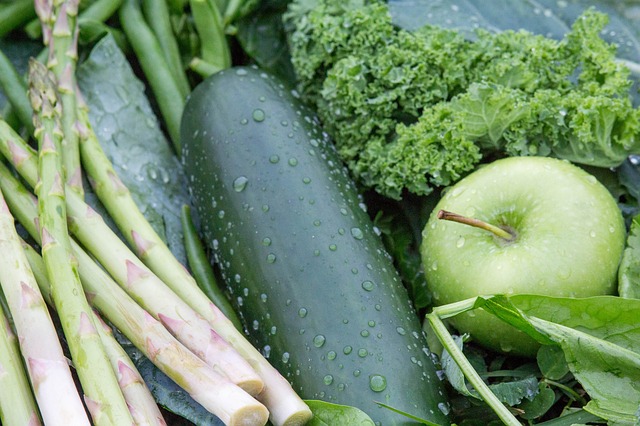
When it comes to harvesting vegetables, timing is everything. Vegetables are at their peak of flavor and nutrition when they are fully ripe, so it is important to harvest them as soon as they are ready. Overripe vegetables will begin to deteriorate and lose their flavor, so it is best to harvest them while they are still at their prime.
Not only will you enjoy the taste of fresh and delicious vegetables when you harvest them at the right time, but you will also give your plants more strength to grow and produce more vegetables. By harvesting vegetables at the right time, you can encourage your plants to put all their energy into producing new growth and fruit, instead of trying to ripen an overripe vegetable.
Plants to Consider
A recommended list for your garden:
- Scallions (Green Onions)
- Lettuce
- New Zealand Spinach
- Cucumber plant
- Tomatoes
- Dwarf Lemon Tree
- Sage
- Basil (Sweet Basil)
- Bell Pepper plant
- Kale (Curly Kale, Dinosaur Kale, Red Russian Kale)
- Cabbage
- Broccoli
- Beetroots
- Onions
- Peas
- Beans
- Potatoes
- Sweet Potato
- Carrots
- Carambola Tree (Star Fruit)
- Flowers (Which to your taste looks beautiful)
Conclusion
In no time, your garden will be producing delicious, fresh produce for you and your family to enjoy. And best of all, starting a garden from scratch is a fun and healthy hobby that the whole family can enjoy together. Not only will you get to spend time outside, but you'll also learn about the process of growing your own food, and gain a sense of pride and accomplishment with each harvest. So why not start your garden today and enjoy the many benefits it has to offer!
